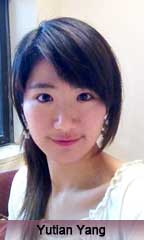Is a More Sustainable Olympics Possible?: Q&A With Maxwell Professor Matthew Huber
Organizers of the 2024 Paris Olympics are committed to creating the most sustainable Games ever—limiting new construction, sourcing local food and using 100% renewable energy, for example. But could a global event with millions of people from all over the…


 Chen agrees that the debates help people get to know the candidates in a direct way, by addressing the most concerning problems and issues. “In this way, people not only get to know their solutions and thoughts, but also get to know them better based on their confidence, or probable personalities,” says Chen, who is from Wuhan. “Another thing I found very interesting about this is the debate can be very intense and exciting to see how they react and counterpoint in a sophisticated way.”
Chen agrees that the debates help people get to know the candidates in a direct way, by addressing the most concerning problems and issues. “In this way, people not only get to know their solutions and thoughts, but also get to know them better based on their confidence, or probable personalities,” says Chen, who is from Wuhan. “Another thing I found very interesting about this is the debate can be very intense and exciting to see how they react and counterpoint in a sophisticated way.” Yang has noticed the intensity of the campaign has increased as it gets closer to the election—and the results are not certain, unlike in China. “The thing is here you are having a real election, but we don’t really have one,” Yang says. “All media is talking about how the next leader in China will do, like it’s already known, but officially, it should still remain uncertain.”
Yang has noticed the intensity of the campaign has increased as it gets closer to the election—and the results are not certain, unlike in China. “The thing is here you are having a real election, but we don’t really have one,” Yang says. “All media is talking about how the next leader in China will do, like it’s already known, but officially, it should still remain uncertain.”